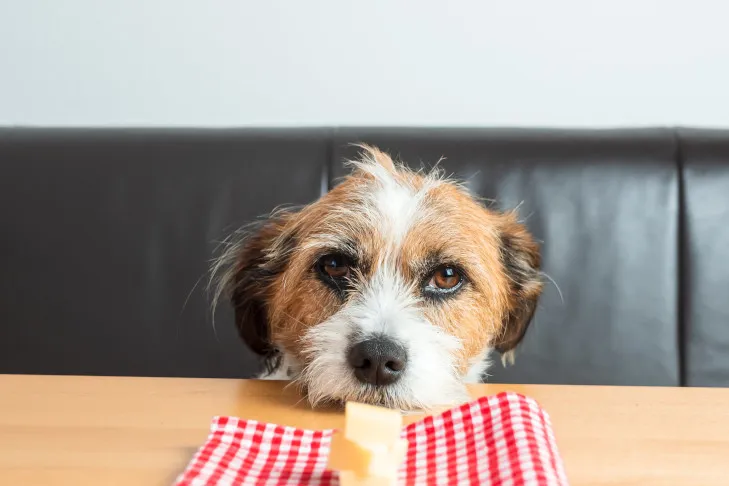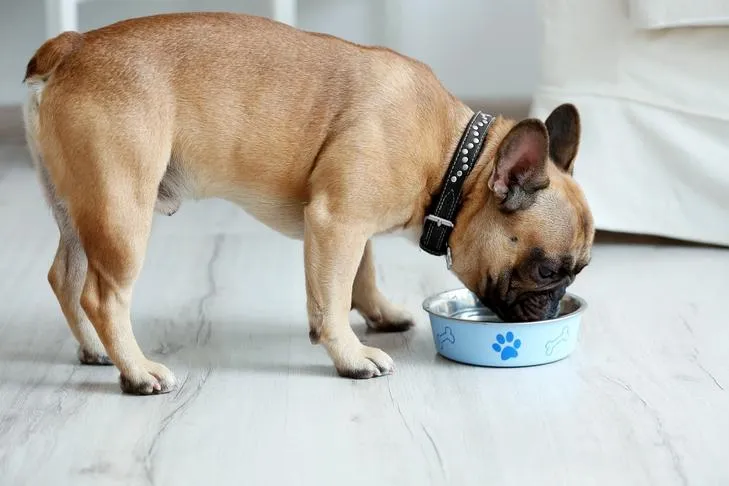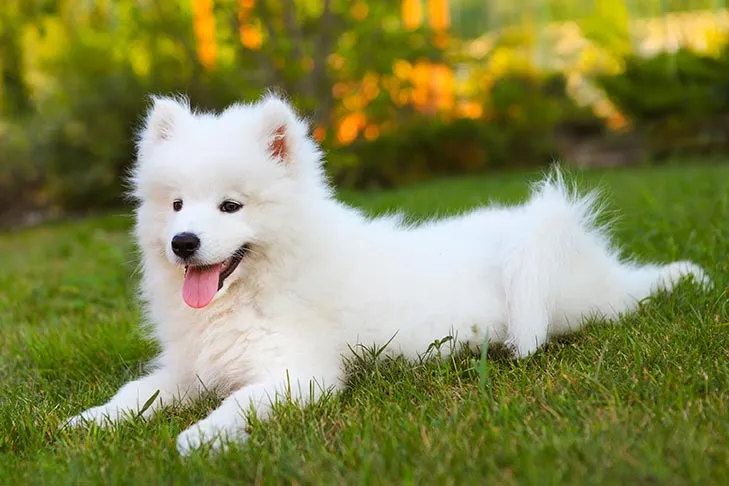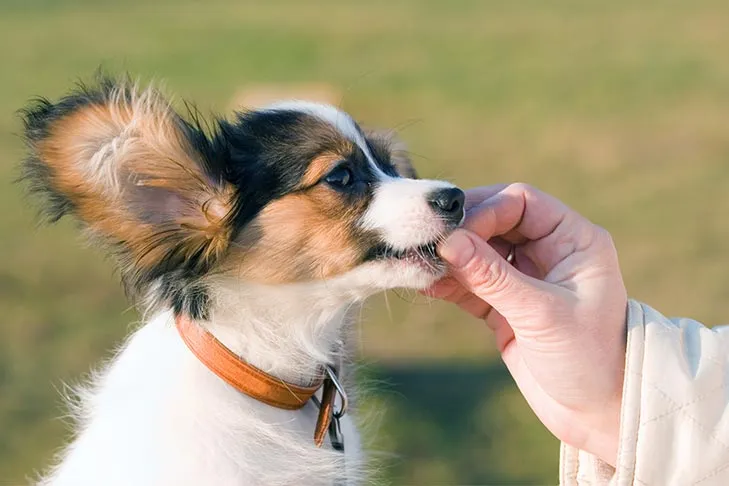Welcoming a new puppy into your home is an exciting time, filled with cuddles, playtime, and the joy of watching them grow. As a loving pet parent, you might often wonder about sharing your meals with your furry friend. While a puppy’s primary diet should consist of high-quality puppy-specific food, many human foods can be safe and even beneficial as occasional treats or supplements. Understanding What Human Food Can You Feed Puppies is crucial to ensure their health and well-being, avoiding anything that could be harmful to their developing systems. This guide from Dog Care Story will walk you through safe options and essential feeding guidelines to help you make informed choices for your little companion.
General Guidelines for Feeding Human Food to Puppies
Before introducing any human food to your puppy, it’s vital to keep a few general rules in mind. Puppies have sensitive digestive systems, and abrupt changes or inappropriate foods can lead to upset stomachs, diarrhea, or more severe health issues. Always consult your veterinarian before making significant changes to your puppy’s diet or if you have any concerns.
Firstly, moderation is key. Human foods should always be given as treats, not as meal replacements. Small portions are essential to prevent overfeeding and maintain a balanced diet. Secondly, ensure any human food is plain, unsalted, unseasoned, and unbuttered. Spices, excessive salt, sugar, onions, and garlic are all potentially harmful to dogs, especially puppies. Thirdly, introduce new foods one at a time. This allows you to monitor your puppy for any adverse reactions, such as allergies or digestive upset. If you notice any unusual symptoms, stop feeding that food immediately and contact your vet. Remember, a puppy’s needs are different from an adult dog’s, so what might be safe for an older dog could be risky for a young pup.
Safe Human Foods for Puppies (and Why)
Many common human foods, when prepared correctly and offered in moderation, can be safe and enjoyable for your puppy. These foods can provide additional nutrients, act as training rewards, or simply offer a little variety in their diet.
Bread
Small pieces of plain, whole-wheat bread are generally safe for puppies, provided they contain no spices, especially no raisins or xylitol, which are highly toxic to dogs. While bread doesn’t offer significant nutritional benefits, a tiny, unseasoned piece can be a harmless occasional treat. However, it’s best to avoid store-bought breads due to preservatives and high carbohydrate content.
Cashews
Unsalted cashews are acceptable for puppies in very small quantities. These nuts provide beneficial calcium, magnesium, antioxidants, and protein, supporting a puppy’s growth. Given their fat content, feeding only a few at a time is crucial to prevent weight gain or digestive upset. Always ensure they are unsalted to protect your puppy’s kidney health.
Cheese
Many puppies can enjoy small to moderate amounts of cheese as a treat, as long as they are not lactose intolerant, which is a rare but possible condition. Opt for lower-fat varieties like cottage cheese or mozzarella. Cheese offers protein and calcium, but due to its fat content, it should be given sparingly. Many dogs also enjoy specialized dried cheese chews designed for canines.
 An All-American Dog puppy rests its head on a kitchen table, looking curiously at a piece of cheese.
An All-American Dog puppy rests its head on a kitchen table, looking curiously at a piece of cheese.
Coconut
Coconut, including its meat, milk, and oil, can be safely given to puppies. This “funky fruit” contains lauric acid, which possesses antibacterial and antiviral properties that can support a puppy’s developing immune system. It may also help with bad breath and skin conditions like hot spots or flea allergies. When offering fresh coconut, always ensure the furry outer shell is removed to prevent choking hazards or intestinal blockages.
Corn
Corn is a common ingredient in many commercial dog foods, and cooked corn kernels are safe for puppies. It provides fiber, vitamins, and antioxidants. However, the corn cob itself is a significant choking hazard and can cause intestinal blockages, which can be life-threatening for a puppy. Always remove the kernels from the cob before offering them to your young pup.
Eggs
Fully cooked eggs are an excellent source of protein, essential amino acids, and vitamins for growing puppies. They can be particularly soothing for an upset stomach. It is crucial to cook eggs thoroughly, as raw egg whites contain avidin, which can interfere with biotin absorption and lead to a biotin deficiency over time. Scrambled or boiled eggs, without any seasonings, are best.
Fish
Cooked fish, especially salmon and sardines, can provide a fantastic health boost for puppies. They are rich in omega-3 fatty acids, which support brain and eye development, and high-quality protein. Salmon is packed with vitamins and protein, while sardines offer easily digestible bones for extra calcium. Always ensure fish is fully cooked and all tiny bones are meticulously removed (except for the soft bones in sardines). Never feed raw or undercooked fish, as it can contain dangerous parasites that are highly toxic to dogs and can cause severe illness. Limit fish intake to no more than twice a week.
Ham
While not the healthiest choice due to its high sodium and fat content, a very small, lean, unseasoned piece of cooked ham can be offered to your puppy as an occasional treat. It should never be a regular part of their diet. Ensure it is plain, without glazes, spices, or excessive fat, which can upset a puppy’s stomach.
 A French Bulldog puppy happily eating from a bowl at home, demonstrating healthy eating habits.
A French Bulldog puppy happily eating from a bowl at home, demonstrating healthy eating habits.
Honey
Small amounts of local, raw honey can be given to puppies. Honey is packed with numerous nutrients, including vitamins, minerals, and antioxidants. Some believe that introducing small amounts of local pollen through honey can help build immunity against seasonal allergies in puppies. It can also be used topically for minor cuts or burns, though veterinary guidance is always best for any injury.
Milk
Puppies can drink milk, but caution is advised. While they thrive on their mother’s milk, some puppies develop lactose intolerance as they age, meaning they struggle to digest the lactose in cow’s milk. A small amount might be fine, but observe your puppy for signs of digestive upset like diarrhea or gas. It’s generally safer to stick to water or puppy-specific milk replacers.
Peanut Butter
Plain, unsalted, raw peanut butter can be an excellent source of protein, healthy fats, and vitamins B and E for puppies. It’s a popular choice for hiding medication or as a special treat. However, it is absolutely critical to check the label for xylitol, an artificial sweetener that is highly toxic and potentially fatal to dogs. Always choose brands free of xylitol and avoid those with added sugars or excessive salt.
Peanuts
Unlike almonds, plain, unsalted peanuts are safe for puppies. They offer good fats and protein, beneficial for a puppy’s energy and growth. As with cashews, moderation is key due to their fat content, which can potentially lead to pancreatitis if consumed in large amounts. Always ensure they are unsalted to protect your puppy’s developing kidneys.
Popcorn
Unsalted, unbuttered, and air-popped popcorn can be a fun, light treat for your puppy in moderation. It contains riboflavin and thiamine, which support eye health and digestion, along with small amounts of iron and protein. Crucially, ensure all kernels are fully popped, as unpopped kernels can pose a choking hazard or cause digestive issues.
Pork
Cooked, lean pork is a highly digestible protein source packed with amino acids, making it a suitable occasional treat for puppies. It may also be less likely to cause allergic reactions compared to some other meats. Always ensure the pork is fully cooked, with all bones, excess fat, and skin removed, and completely free of seasonings like salt, onions, or garlic, which are dangerous for puppies.
 A fluffy Samoyed puppy lays serenely in the green grass outdoors, illustrating a picture of health and contentment.
A fluffy Samoyed puppy lays serenely in the green grass outdoors, illustrating a picture of health and contentment.
Quinoa
Quinoa, a highly nutritious grain, is now found in many high-quality dry dog foods and can be a healthy addition to a puppy’s diet. Cooked quinoa provides a strong nutritional profile, offering a healthy alternative to other starches like corn, wheat, and soy sometimes used in kibble. It’s rich in protein, fiber, and essential amino acids, supporting overall growth and energy.
Shrimp
A few fully cooked shrimp, with all shells (including tail, head, and legs) completely removed, can be a safe and healthy treat for your puppy. Shrimp are low in fat, calories, and carbohydrates, while being rich in antioxidants, vitamin B-12, and phosphorus, all vital for a growing puppy’s health. Ensure they are plain, without any spices or oils.
Tuna
Cooked, fresh tuna in small amounts can be an excellent source of omega-3 fatty acids for puppies, promoting healthy heart and eye development. If you opt for canned tuna, choose varieties packed in water (not oil) and ensure it has no added salt or spices. Due to small amounts of mercury and sodium in canned tuna, it should only be given very sparingly and in moderation.
Turkey
Plain, cooked turkey, with all excess fat, skin, and bones removed, is a safe and highly digestible protein for puppies. Poultry bones can splinter and cause severe internal damage, so always double-check. Like other meats, turkey should be free of any seasonings, especially salt, onions, or garlic. This lean protein can be a wonderful, wholesome treat.
Wheat or Grains
Contrary to some popular beliefs, most dogs, including puppies, do not need to be on a grain-free diet. Grains like wheat and corn are excellent sources of protein, essential fatty acids, and fiber, contributing to a balanced diet and healthy digestion. If your puppy has specific grain allergies, your veterinarian might recommend avoiding them, but for most, grains are a beneficial part of their diet.
Yogurt
Plain, unsweetened yogurt can be a perfectly acceptable snack for puppies, particularly beneficial for its probiotic content, which supports a healthy digestive system. However, as with milk, some puppies may have difficulty digesting dairy. Always opt for plain yogurt without any added sugars, artificial sweeteners (especially xylitol), or fruit flavorings, as these can be harmful.
 A delightful Papillon puppy gently taking a treat from a caring hand, showcasing good manners and a healthy appetite.
A delightful Papillon puppy gently taking a treat from a caring hand, showcasing good manners and a healthy appetite.
What Human Foods Should You AVOID Feeding Puppies?
While many human foods are safe, it’s equally important to be aware of foods that are toxic or dangerous for puppies. These can cause severe health issues, ranging from digestive upset to life-threatening conditions. Always keep these items out of your puppy’s reach. For a comprehensive list of foods to strictly avoid, we encourage you to read our detailed articles: what foods can you not feed your dog, what foods should you not feed your dog, and what are foods dogs can t eat.
When in doubt about a particular food, it’s always best to err on the side of caution and avoid feeding it to your puppy. Some examples of highly dangerous foods include chocolate, grapes and raisins, onions, garlic, avocado, macadamia nuts, and anything containing xylitol. Being informed is the best way to protect your puppy. For further reading on dangerous foods, see what shouldnt you feed your dog and what are food dogs can t eat.
Conclusion
Feeding your puppy is a significant part of ensuring their healthy development, and knowing what human food can you feed puppies expands your options for treats and nutritional boosts. While commercial puppy food should form the cornerstone of their diet, many human foods can offer safe and beneficial additions when given in moderation and prepared appropriately. Always prioritize plain, unseasoned options and introduce new foods gradually to monitor for any adverse reactions.
The best approach is always to consult your veterinarian, who can provide tailored advice based on your puppy’s specific breed, age, and health status. They can help you create a diet plan that is both balanced and safe, ensuring your new companion gets the best possible start in life. For more expert advice on puppy care and nutrition, explore other articles on Dog Care Story!
